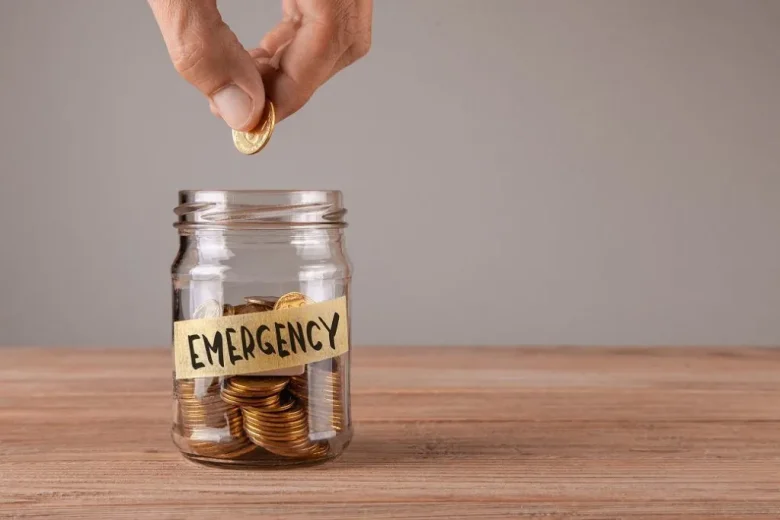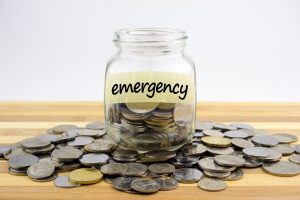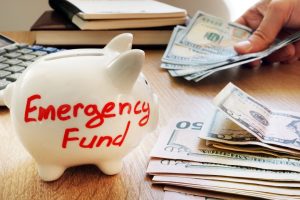Having a solid financial foundation is crucial to dealing with life’s uncertainties and achieving a state of contentment. An emergency fund should be established as one of the foundations for achieving stability. When people and families have emergency funds, they are better able to weather financial storms and unforeseen expenses. In this in-depth analysis, we explore why an emergency fund is so important and what benefits it offers families and individuals.
1. Definition and Purpose of an Emergency Fund
A savings account is established to cover unexpected financial situations; it is also called an emergency fund or contingency fund. Such expenses can come from anywhere: lost wages, car damage, unexpected home repairs, or medical bills. The main purpose of setting up an emergency fund is to protect people from debt or financial problems during difficult times.
2. Set up an Emergency Fund:
Building an emergency fund requires a careful strategy to determine what amount to set aside. The general advice from financial experts is to have an emergency fund for three to six months of living expenses. This coverage allows individuals and families to meet basic needs in the event of unemployment or other financial difficulties. To determine the target amount for your emergency fund, it’s crucial to calculate your living expenses, including housing, utilities, groceries, insurance, and debt.
3. Safety Against Unexpected Costs
Protecting yourself from unexpected expenses is a major benefit of having an emergency fund. Medical emergencies, home repairs, and car breakdowns are just a few examples of unexpected events that can put a financial strain on your finances. People can avoid taking out expensive loans or accumulating credit card debt by maintaining an emergency fund to cover these types of unexpected expenses. People can deal with financial problems more easily if they have cash reserves.
4. Lessons Learned from Past Job Losses
In today’s fast-paced work environment, your job security is uncertain. Uncertainty and stress can arise after a major financial setback due to a sudden job loss. In times of unemployment, having an emergency fund can be a lifesaver as it gives you a cushion until you find another job. This helps reduce expenses in the short term but also prevents long-term savings from drying up or turning to expensive credit options during times of financial hardship.
5. Promotion of Emotional and Mental Health
Many people’s anxiety and mental health problems stem from concerns about money. Having an emergency fund to fall back on in times of need can help you relax and improve your mental health. People do not have to worry about how to deal with unforeseen financial problems and can concentrate on their daily lives.
6. Avoid High-interest Loans
Credit cards and high-interest loans are common ways people deal with unexpected expenses. As a result, you may find yourself wallowing in endless guilt. To avoid falling into the debt trap due to high-interest rates, it’s a good idea to have an emergency fund. Having cash on hand allows people to handle unexpected expenses without taking out a loan, helping them avoid interest and debt.
7. The Opportunity to Achieve Financial Freedom
In addition to helping in times of crisis, building an emergency fund is a great way to keep your finances in order. When people have a solid financial safety net, they feel like they have more control over their financial future. The ability to make your own financial decisions, including budgeting and saving money, is a key component to long-term financial independence and stability.
8. Make a Plan for the Future of Your Money
An emergency fund should be part of any comprehensive financial strategy. It lays the foundation for other financial goals, such as saving for retirement, buying a house, and investing. When individuals have an emergency fund to fall back on in times of economic uncertainty or unforeseen personal tragedies, they are better able to stay motivated to achieve their long-term financial goals.
Conclusion
Finally, it’s important to have an emergency fund as part of your overall financial strategy. Not only does it provide a cushion in times of need, but it also protects you from predatory lenders, sets you up for long-term financial success, and reduces stress. When families or individuals have a well-funded emergency fund that can be used to weather life’s storms, their financial stability and resilience are increased. By being proactive in building and maintaining an emergency fund, you can achieve true financial security and face life’s uncertainties with confidence.
FAQs:
1. What is an emergency fund?
An emergency fund is a savings account intended to cover unexpected expenses and other situations. You can use it as a safety net to pay unexpected bills without going into debt.
2. How much should I save for emergencies?
Many people say they would have to save three to six months of living expenses in the event of a disaster. But your exact amount may vary depending on factors such as your job security and other financial obligations.
3. What does emergency mean?
In an emergency, you may have to pay for hospital bills, car repairs, home repairs, sudden job loss, or unexpected health costs. Usually, emergencies are expenses that you haven’t planned for or paid for.
4. What is the best place to store reserve funds?
For easy access to emergency funds, a money market account or a high-yield savings account are often good options. These options allow you to get cash and earn some interest at the same time.
5. Can I use my emergency fund for non-emergency situations?
If possible, your emergency fund should only be used for real crises. While you may want to use it for other purposes, it’s important to maintain its structure so you’re ready for anything.



